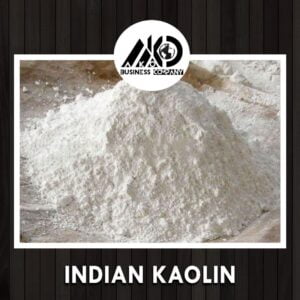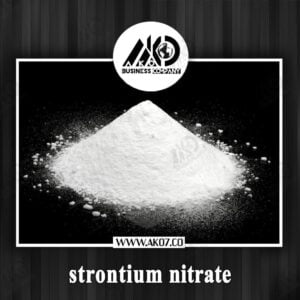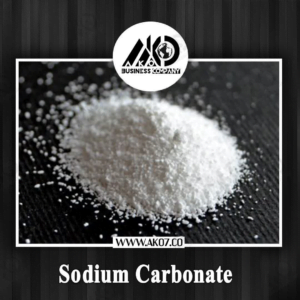Potassium Nitrate – Industrial
CHEMICALSVIPPotassium nitrate is a chemical compound with the formula KNO3. It is also known as saltpeter or niter. It is a white, crystalline salt that is very soluble in water. It is a source of nitrate and potassium, which are essential for plant growth, fertilizer, and pesticide. It is also a component of gunpowder, explosives, fireworks, and rocket fuels. It is a food preservative that makes meat appear red by reacting with hemoglobin and myoglobin. It is an additive in some toothpaste for anti-sensitivity action.
Description
Application of Product
Potassium nitrate is used in fertilizers as a source of nitrogen and potassium – two of the macronutrients for plants.
|
NO. |
Property | Unit | Value |
|
1 |
Appearance | – |
White power |
|
2 |
Nitrogen | % |
Min 13 |
|
3 |
Moisture | % | Max 1.5 |
| 4 | Chlorides | % |
Max 1.5 |
| 5 | Postassium(K2O) | % |
46±1 |
Potassium Nitrate
Potassium nitrate is a chemical compound with the formula KNO3. It is also known as saltpeter or niter. It is a white, crystalline salt that is very soluble in water. It is a source of nitrate and potassium, which are essential for plant growth, fertilizer, and pesticide. It is also a component of gunpowder, explosives, fireworks, and rocket fuels. It is a food preservative that makes meat appear red by reacting with hemoglobin and myoglobin. It is an additive in some toothpaste for anti-sensitivity action.
Our Quality
We are proud to offer you the best and purest potassium nitrate on the market. Our potassium nitrate is obtained from natural sources, such as niter deposits in caves and soils. It undergoes rigorous quality control and testing to ensure that it meets the highest standards of safety, performance, and sustainability.
We will explain how to make sodium nitrate from potassium nitrate, and what are the best materials and quality control systems for this process. To make sodium nitrate from potassium nitrate, you need to react with sodium hydroxide (NaOH), a strong base that can be obtained from the electrolysis of salt water. The reaction is as follows:
KNO 3 + NaOH → NaNO 3 + KOH
The products of this reaction are sodium nitrate (NaNO 3) and potassium hydroxide (KOH), which can be separated by crystallization or evaporation. The sodium nitrate crystals can then be purified by recrystallization or washing with cold water.
To ensure the quality and purity of the sodium nitrate product, you need to use the best and pure materials for making potassium nitrate and sodium hydroxide. For potassium nitrate, you can use natural sources such as saltpeter or niter, which are minerals that contain high concentrations of potassium nitrate. You can also use synthetic sources such as ammonium nitrate (NH 4 NO 3) and potassium chloride (KCl), which can be reacted to produce potassium nitrate. For sodium hydroxide, you can use pure salt water or brine, which can be electrolyzed to produce sodium hydroxide and chlorine gas.
You also need to use a quality control system that can monitor and measure the concentration, pH, temperature, and purity of the reactants and products. You can use various methods and instruments for this purpose, such as titration, spectrophotometry, conductivity meter, pH meter, thermometer, and refractometer. You can also use an Internet of Things (IoT) system that can remotely control and collect data from these devices using sensors, actuators, and wireless communication.
By using the best materials and quality control system for making sodium nitrate from potassium nitrate, you can ensure that your product meets the standards and specifications required for your intended applications. Sodium nitrate is a versatile salt that has many benefits for agriculture, industry, and human health. However, it also has some risks and drawbacks that need to be considered and managed properly. For example, sodium nitrate can cause water pollution if it leaches into groundwater or surface water. It can also cause health problems if it is consumed in excess or contaminated with other substances. Therefore, you should always follow the safety precautions and regulations when handling and using sodium nitrate.
We also provide customized solutions to suit your diverse needs and demands.
Some of the benefits of our potassium nitrate are:
- It is a water-soluble form of nitrogen that enhances plant growth and yield.
- It is a source of potassium that improves plant resistance to stress and diseases.
- It is a pesticide that controls pests and weeds by burning or suffocating them.
- It is a component of gunpowder, explosives, fireworks, and rocket fuels that creates smoke, flames, and thrust.
- It is a food preservative that preserves the color, flavor, and texture of meat.
- It is an additive in some toothpaste that reduces tooth sensitivity by blocking pain signals.






There are no reviews yet.